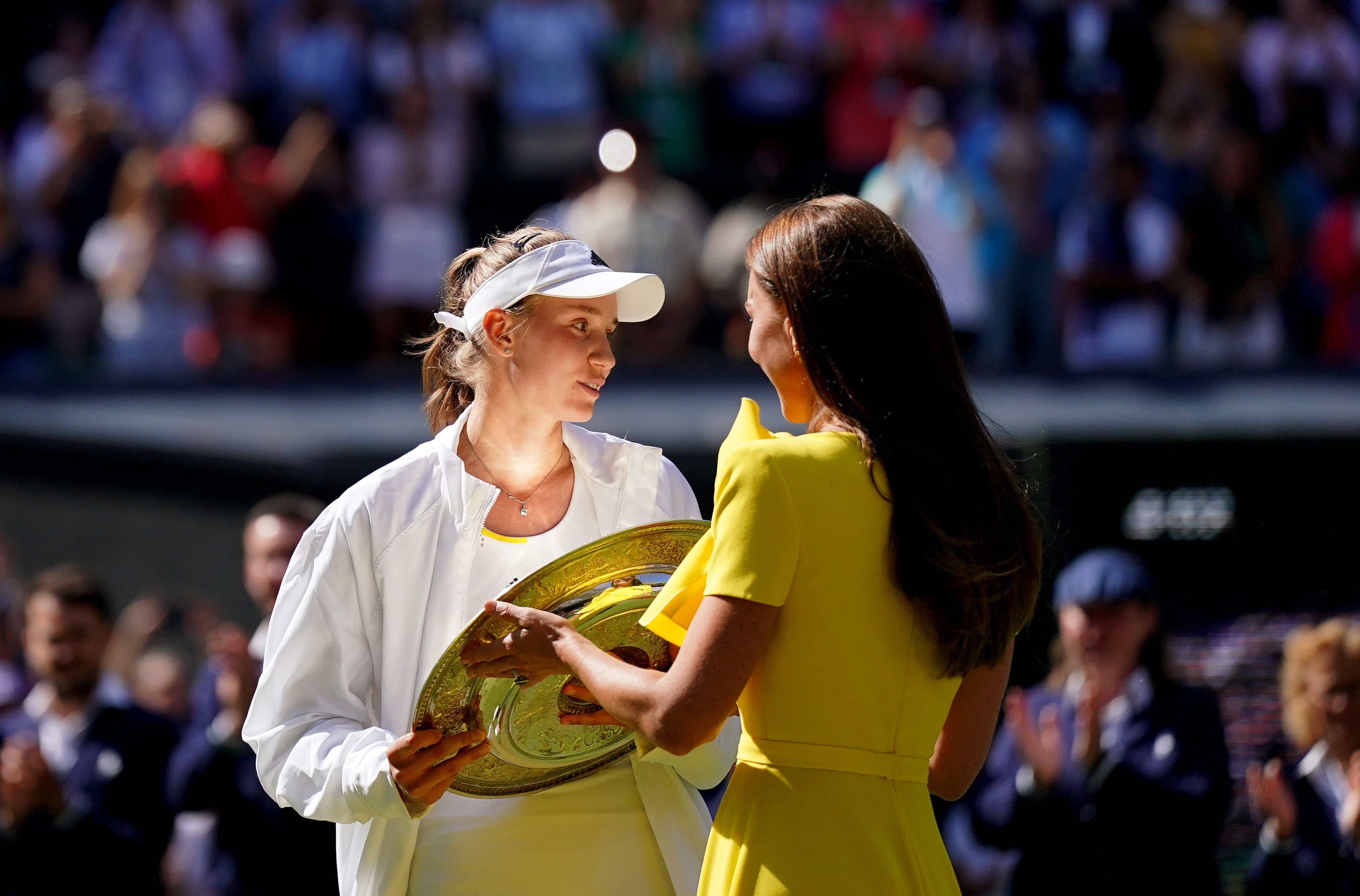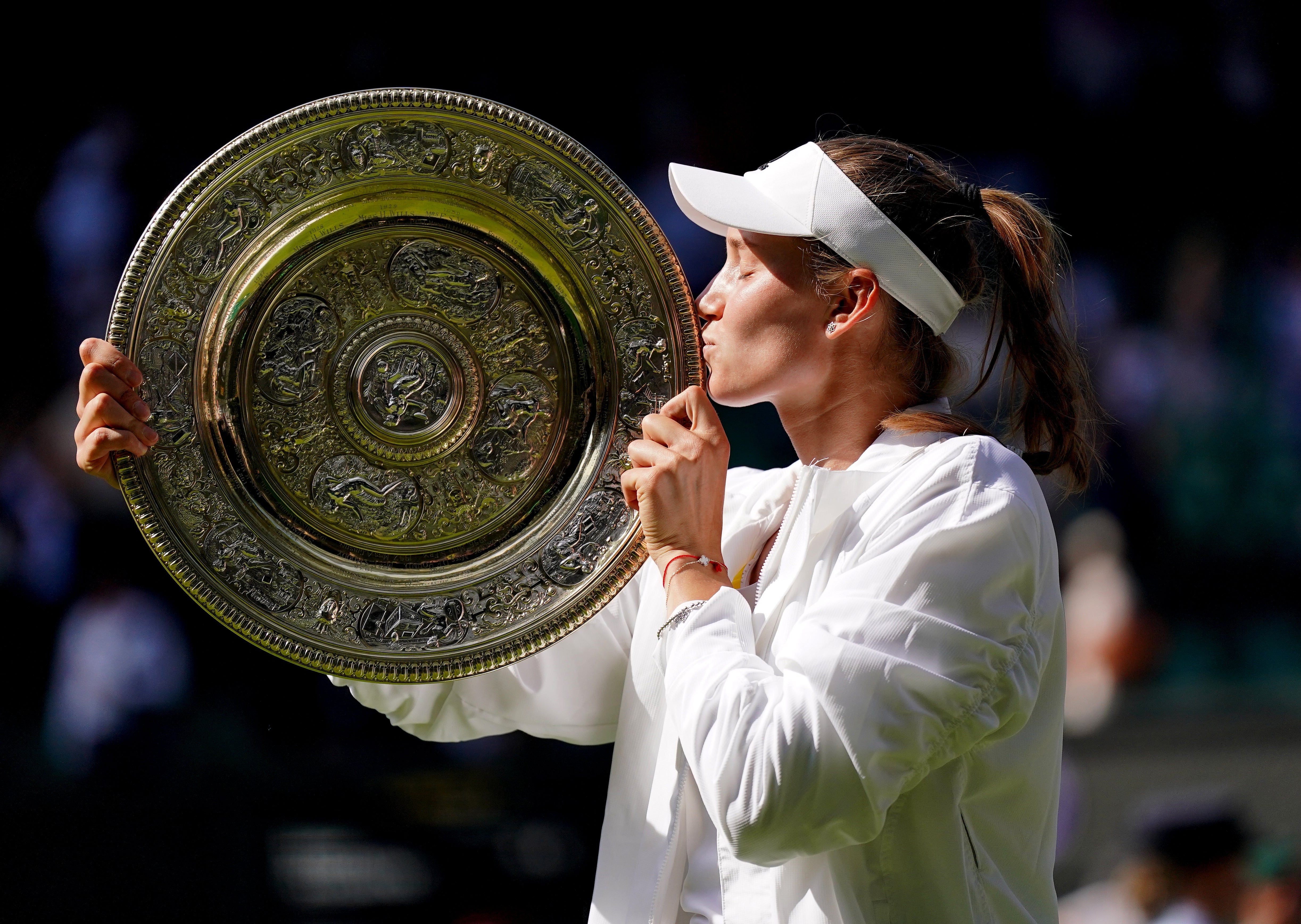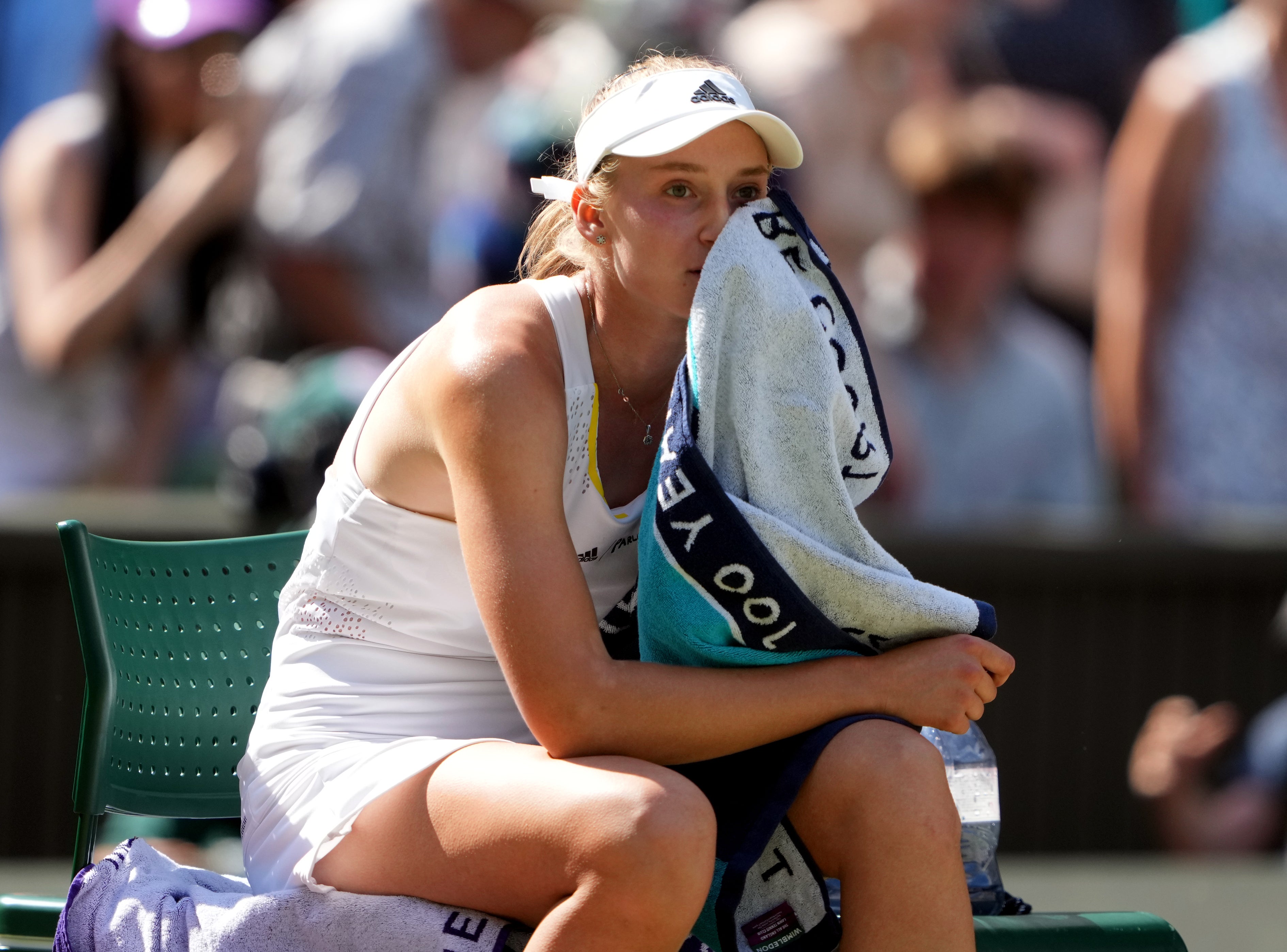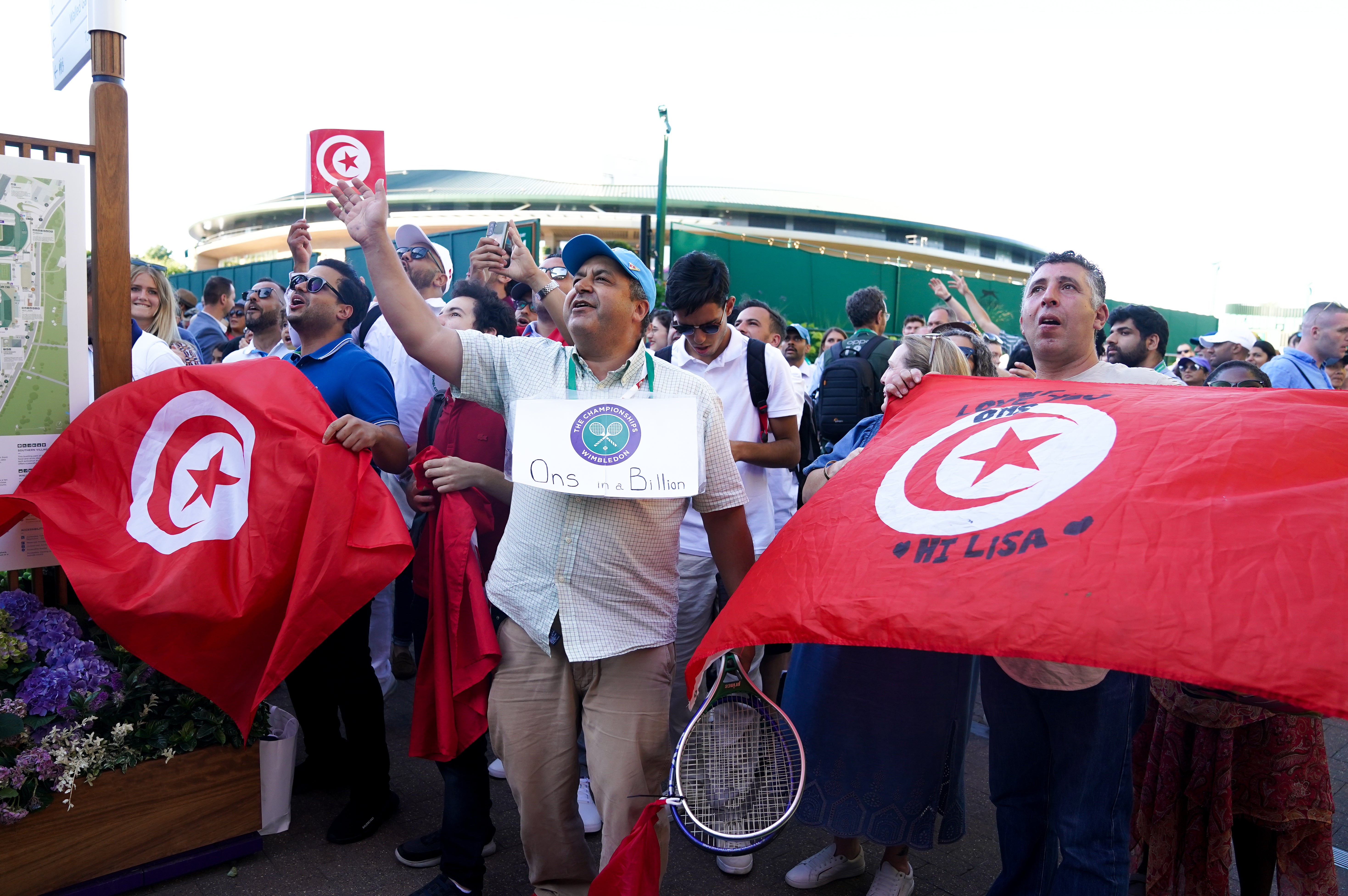Elena Rybakina left too stunned to celebrate after winning first Wimbledon title
The Russian-born 23-year-old came from a set down to triumph 3-6 6-2 6-2 on Centre Court

Your support helps us to tell the story
From reproductive rights to climate change to Big Tech, The Independent is on the ground when the story is developing. Whether it's investigating the financials of Elon Musk's pro-Trump PAC or producing our latest documentary, 'The A Word', which shines a light on the American women fighting for reproductive rights, we know how important it is to parse out the facts from the messaging.
At such a critical moment in US history, we need reporters on the ground. Your donation allows us to keep sending journalists to speak to both sides of the story.
The Independent is trusted by Americans across the entire political spectrum. And unlike many other quality news outlets, we choose not to lock Americans out of our reporting and analysis with paywalls. We believe quality journalism should be available to everyone, paid for by those who can afford it.
Your support makes all the difference.Elena Rybakina was too shocked to celebrate after defeating Ons Jabeur to give her adopted country of Kazakhstan a first grand slam title at Wimbledon.
In the first women’s singles final at the All England Club between two new slam finalists for 60 years, the 23-year-old came from a set down to claim a 3-6 6-2 6-2 victory.
Rybakina, who is the youngest woman to win the title since Petra Kvitova in 2011, has shown with her exceptional ball striking and calm temperament that she is a deserving major champion, but she has found herself caught in a storm not of her own making over her nationality and background.
When Wimbledon organisers decided to ban Russian and Belarusian athletes following the invasion of Ukraine, it was partly to avoid the propaganda opportunities should British royalty end up presenting a player from one of those two countries with the trophy.
It was more than a little uncomfortable, therefore, that the Duchess of Cambridge did indeed give the Venus Rosewater Dish to a player born, raised and reportedly still a resident in Russia, but who switched to representing Kazakhstan for financial reasons four years ago.
“She congratulated me,” said Rybakina. “She said that I played really well. It was amazing to get the trophy from her.”
Russian media have been celebrating Rybakina’s success and the outcome shows the difficulty of implementing such a policy in an individual and very international sport.

She has answered the many questions diplomatically while stressing the importance of the support she has received from Kazakhstan.
The president of the Kazakh tennis federation cheered her on enthusiastically from the stands, and Rybakina said: “He came to watch and support me from the semis. He was always on the phone through the weeks, through the matches, supporting me. So I’m really, really grateful for everything.
“I’m playing for Kazakhstan for a very, very long time. I represent (the country) in the biggest tournaments, Olympics, which was a dream come true. I don’t know what’s going to happen. It’s always some news, but I cannot do anything about this.”
Tunisian Jabeur has blazed a trail for Arab tennis and, on the Muslim holiday of Eid Al Adha, had hoped to become the first African woman to win a grand slam singles title.
But she was unable to maintain a superb start to the match and instead it was the steadier Rybakina who worked her way back into the contest before clinching victory on her first match point.
She greeted the biggest moment of her career with a brief clench of the fist, leaving the crowd, who had been largely backing Jabeur, unsure how to react.
“I didn’t know what to do,” said Rybakina. “It was shocking. Maybe because I believe that I can do it deep inside. But same time it’s, like, too many emotions. I was just trying to keep myself calm. Maybe one day you will see a huge reaction from me, but unfortunately not today.”

Had Jabeur won, she would certainly have reacted with much greater exuberance. The 27-year-old is an emotional and energetic presence on the court and she greeted a first break of serve in the third game with a loud yell.
The third seed, who has won more matches than any other player since the start of 2021, did not put a foot wrong during the first set, showing off her all-round skills and flair.
A sloppy game to start the second set turned the tide, though, and Rybakina began to find answers to the drop shots and trickery that came her way.
Jabeur was immensely frustrated not to be able to take any of the seven break points she created during the second and third sets and she ended the match with a flurry of errors.

She will leave London smiling, though, saying: “I’m very glad with my results. I don’t regret anything. I gave it all today.
“I don’t disbelieve in myself and I know that I’m going to come back and win a grand slam for sure. This is tennis, and it’s part of it. I have to learn from it, definitely. But I’m very, very positive about it.”
Jabeur has embraced her position as a role model for a whole region, and she said: “It’s really amazing to see a lot of fans, not just from Tunisia but from the Arab world. Even when I was serving, it was like, ‘Happy Eid’. It was really amazing to have them.
“I just try to inspire as many generations as I can. Our minister of sports said there is a huge surprise for me. I’m not sure what to expect. I cannot wait to meet Tunisians. They’re really amazing.”
Jabeur had made winning the Wimbledon title a major goal for the season, even replacing a picture of her niece with one of the Venus Rosewater Dish as the background on her phone.
Living up to her self-styled title of the Minister of Happiness, she said of the runners-up plate with a smile: “Apparently I should have put the other one.”